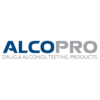BAT and Collector Training FAQs
Q. Must BATs and Collectors receive refresher training?
A. Yes. BATs and Collectors must be re-trained every five years.
Q. Is there a grace period after a BATs five-year certification has elapsed to continue to perform DOT alcohol testing?
A. No. Part 40 regulations do not allow a BAT who does not meet the training requirement to perform a DOT alcohol test.
Q. Is there any difference between the training requirements for BATs and for Specimen Collectors?
A. The short answer is no. For all practical purposes the Part 40 regulations relating to the training requirements for BATs and Collectors are identical.
Q. I heard that I can be trained as a BAT using an on-line self-study course. Is that true?
A. No. BAT training requires two components. The first component covers the CFR Part 40 rules and regulations. While this component can be completed on-line or with self-study materials, completion of the rules and regulations portion of BAT training is not sufficient to certify a student as a BAT. A student must also successfully complete the second component, proficiency training on a specific breath testing instrument, in order to be BAT certified. Component two requires the student to demonstrate proficiency in the use of a breath testing instrument under the real-time observation of a qualified instructor. While this usually occurs in a classroom setting, live webcam is an acceptable alternative method for real-time observation.
Q. What are the consequences for not following the DOT regulations for training and/or drug and alcohol testing?
A. The consequence depends on whether the individual or entity that is out of compliance is a Service Agent, such as a collection site or free-lance BAT trainer, or is a company that is regulated by one of the DOT operating agencies, such as the FMCSA. Service agents are subject to the Public Interest Exclusion (PIE). A PIE prohibits an individual and/or agency from providing their services to regulated companies. The individual and/or agency may also be subject to civil or criminal penalties. Regulated companies, such as a trucking company, are subject to penalties that are assessed by the relevant DOT operating agency of up to $10,000 for each violation.
